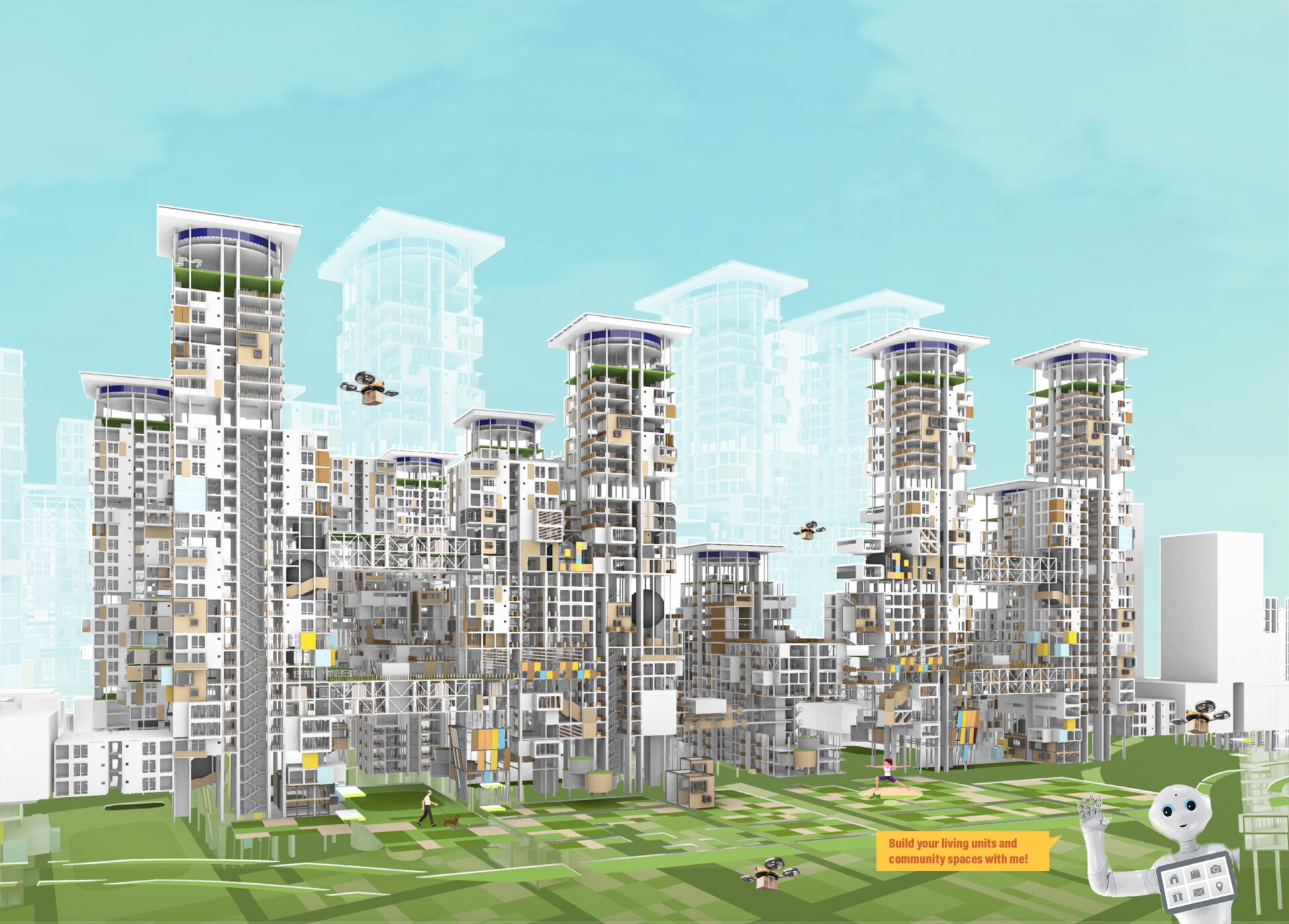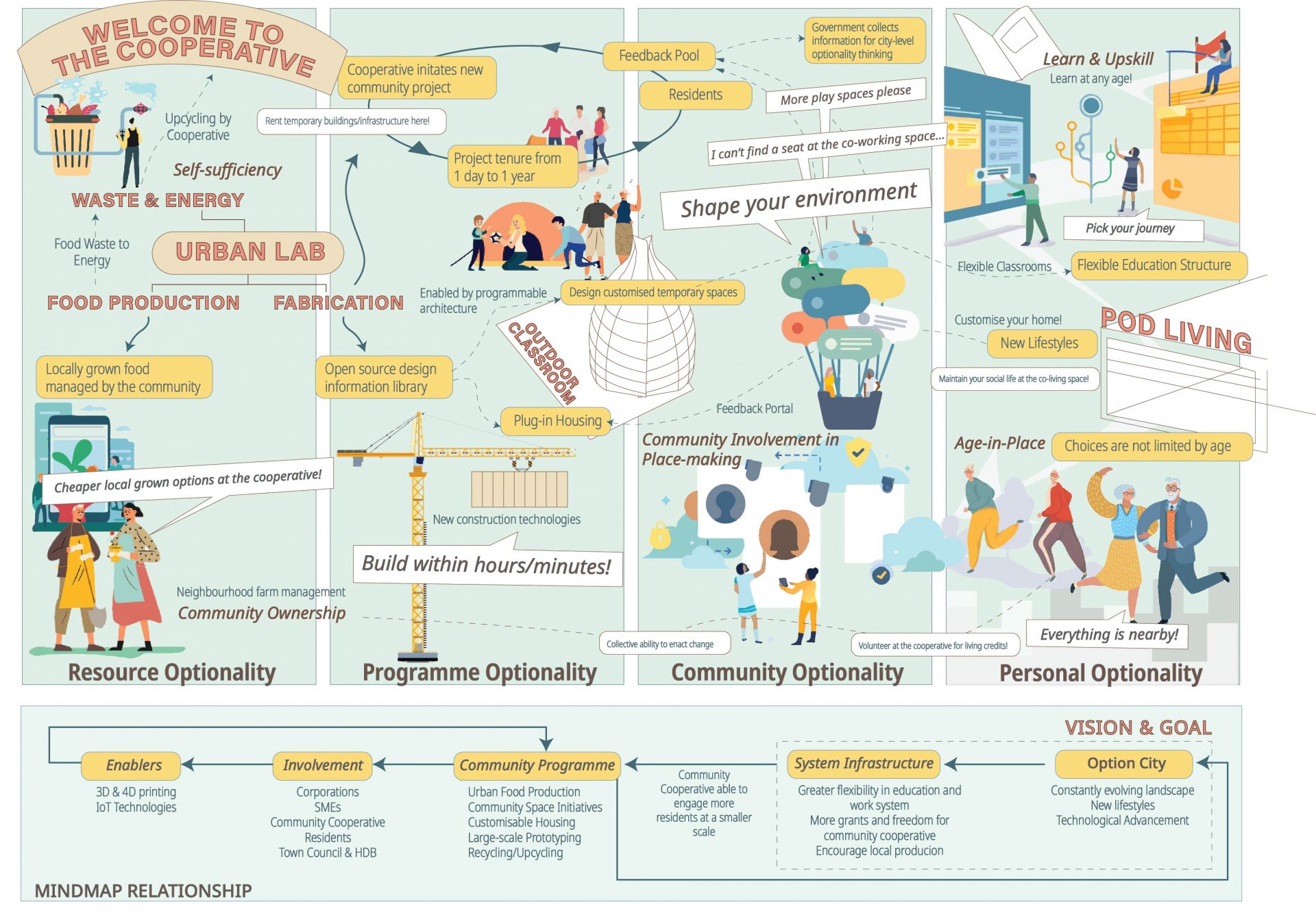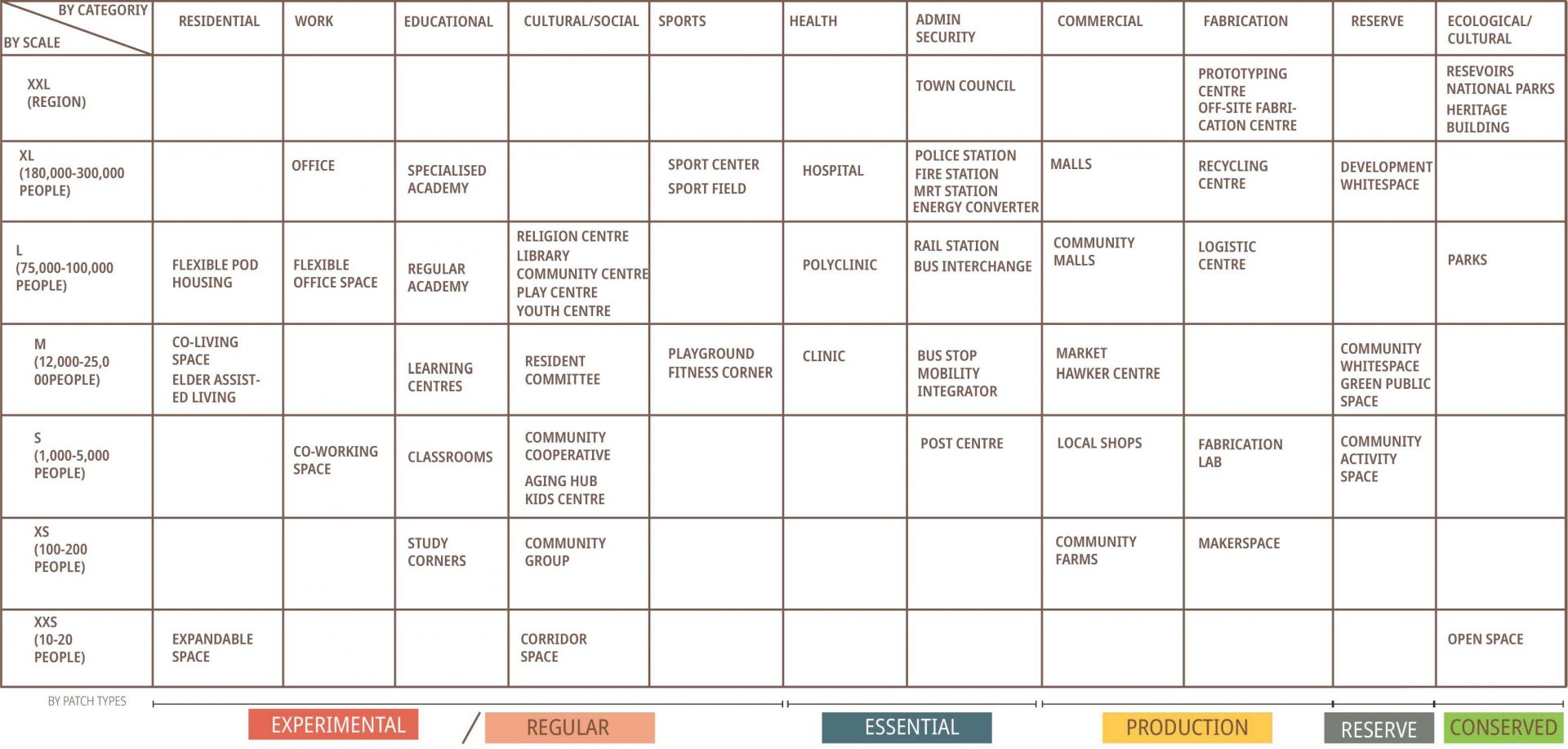Introduction
The thesis aims to create resilient cities by applying optionality thinking. It reflects how cities are restricted by the lack of ability to adapt and grow. When faced with uncertainties, cities are passive in reacting to change and the COVID-19 pandemic is a clear example. Hence, the thesis argues for optionality thinking to be applied to cities to create a dynamic environment that fosters innovative resilient communities through empowering individuals and communities over the programming and use of spaces.
Optionality
By analysing future trends and enablers, the thesis suggests four types of optionality likely to be present in cities.
Types of Optionality:
- Personal Optionality (freedom of choice in terms of lifestyle, living spaces, education, work)
- Community Optionality (collective ability to enact change)
- Programmatic and Spatial Optionality (Flexibility of urban system to create new opportunities and answer spatial needs)
- Resource Optionality (ability to diversify and self-sustain the local economy)
Design Exploration
The optionality framework is subsequently applied at various scales, from masterplan to architecture. The use of patch dynamics in optionality helps to introduce degrees of flexibility and the idea that cities are continuously evolving design process into spatial planning. It also allows the space to change, evolve and be succeeded by other functions/needs. This prevents a deterministic planning that builds on the assumption of the needs of the citizens.
Future Outcome
Such a framework envisions architecture with greater flexibility and diversity within. It moves away from the typical mono-functional planning of usage or horizontal stratification of mix-used developments. With the ability to change the spaces around them, individuals and communities will have greater ownership for the built environment in the urban sandbox.








Supervisor's comments:
Traditional land-use zoning results in isolationist planning that segregates urban functions, people, and impedes social interactions. Advancing the idea of optionality as the means towards greater flexibility and adaptability in planning and architecture for urban resilience, this thesis offers an excellent alternative to land-use planning that challenges our preconceptions of spatial organisation in urban development. This novelty transects physical scales from planning, to urban design, and finally architecture. Through rigorous research and a well-executed design, the project demands that we reimagine how future urban districts could engender creative visions of city-making while responding to an increasingly uncertain world.
- Assoc. Prof. Fung John Chye